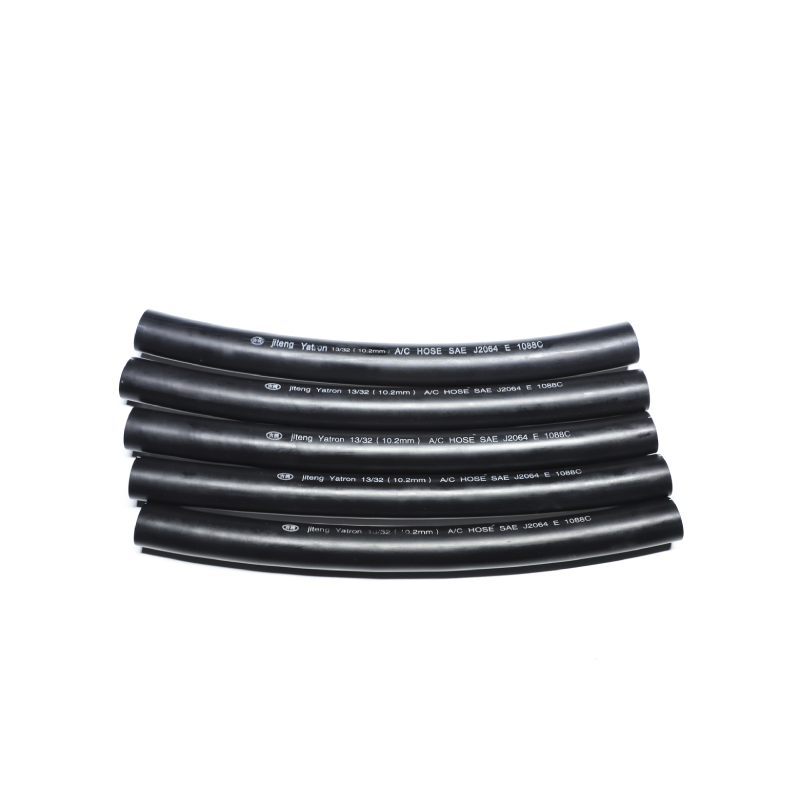fuel line types
Дек . 04, 2024 00:58 Back to list
fuel line types
Understanding Fuel Line Types Ensuring Safe and Efficient Fuel Transport
Fuel lines are essential components in any vehicle or machinery that requires an internal combustion engine. They are responsible for transporting fuel from the tank to the engine, ensuring that the engine receives the necessary amount of fuel for optimal performance. Given their critical function, understanding the various types of fuel lines and their applications is paramount for both vehicle maintenance and safety.
Types of Fuel Lines
1. Rubber Fuel Lines Rubber is the most common material used for fuel lines. It is flexible, easy to install, and resistant to different fuel types. However, rubber lines can degrade over time due to exposure to heat, ozone, and certain chemicals found in modern fuels. Regular inspection is necessary to prevent leaks or failures that could lead to serious engine damage or fire hazards.
2. Metal Fuel Lines Usually made of steel or aluminum, metal fuel lines are robust and resistant to damage. They are ideal for high-pressure applications and are often used in areas where the fuel line is likely to experience physical wear and tear. Metal lines can withstand higher temperatures and are less prone to kinking or rupturing. However, they are less flexible than rubber lines and can be more complex to install or modify.
3. Plastic Fuel Lines Plastic lines, typically made from high-density polyethylene (HDPE) or nylon, are becoming increasingly popular due to their lightweight nature and resistance to corrosion and chemicals. They are often used in aftermarket applications and are suitable for both high and low-pressure systems. One downside is that plastic lines can become brittle over time, particularly when exposed to extreme temperatures.
4. Flexible Fuel Lines These are often a combination of materials that offer both flexibility and strength. Flexible fuel lines are designed to absorb vibrations and movements of the engine, making them suitable for high-performance vehicles. They are frequently used in racing applications where the demands on fuel systems are intensified.
5. Hard Lines and Fittings In some cases, hard lines are used in conjunction with flexible lines to create a secure and efficient fuel delivery system. Hard lines are typically used for routing fuel through the chassis of vehicles, and they are fitted with specialized connectors to ensure a tight seal and prevent leaks.
fuel line types

Safety Considerations
When dealing with fuel lines, safety should always be a priority. Fuel is highly flammable, and any leaks can lead to dangerous situations. Here are some safety tips
- Regular Inspection Periodically check for signs of wear, such as cracking, bulging, or discoloration on rubber and plastic lines. Ensure that metal lines are free of rust and corrosion.
- Correct Installation Always follow the manufacturer’s recommendations for installation. Incorrect installation can cause stress points that may lead to future failures.
- Use Quality Materials Invest in high-quality fuel lines specifically designed for your vehicle’s fuel type and operating conditions.
- Replacement Don’t hesitate to replace old or damaged fuel lines. It’s a relatively low-cost preventative measure that can save you from costly repairs—or worse, accidents.
Conclusion
Understanding the various types of fuel lines is crucial for maintaining the efficiency and safety of any fuel-operated machine or vehicle. Consider the material properties, application needs, and potential safety risks when selecting or replacing fuel lines. By keeping these factors in mind and performing regular maintenance, you can ensure the longevity of your fuels system and improve overall vehicle performance. Whether you're a DIY enthusiast or a professional mechanic, a solid understanding of fuel line types will serve you well in your maintenance and repair endeavors.
